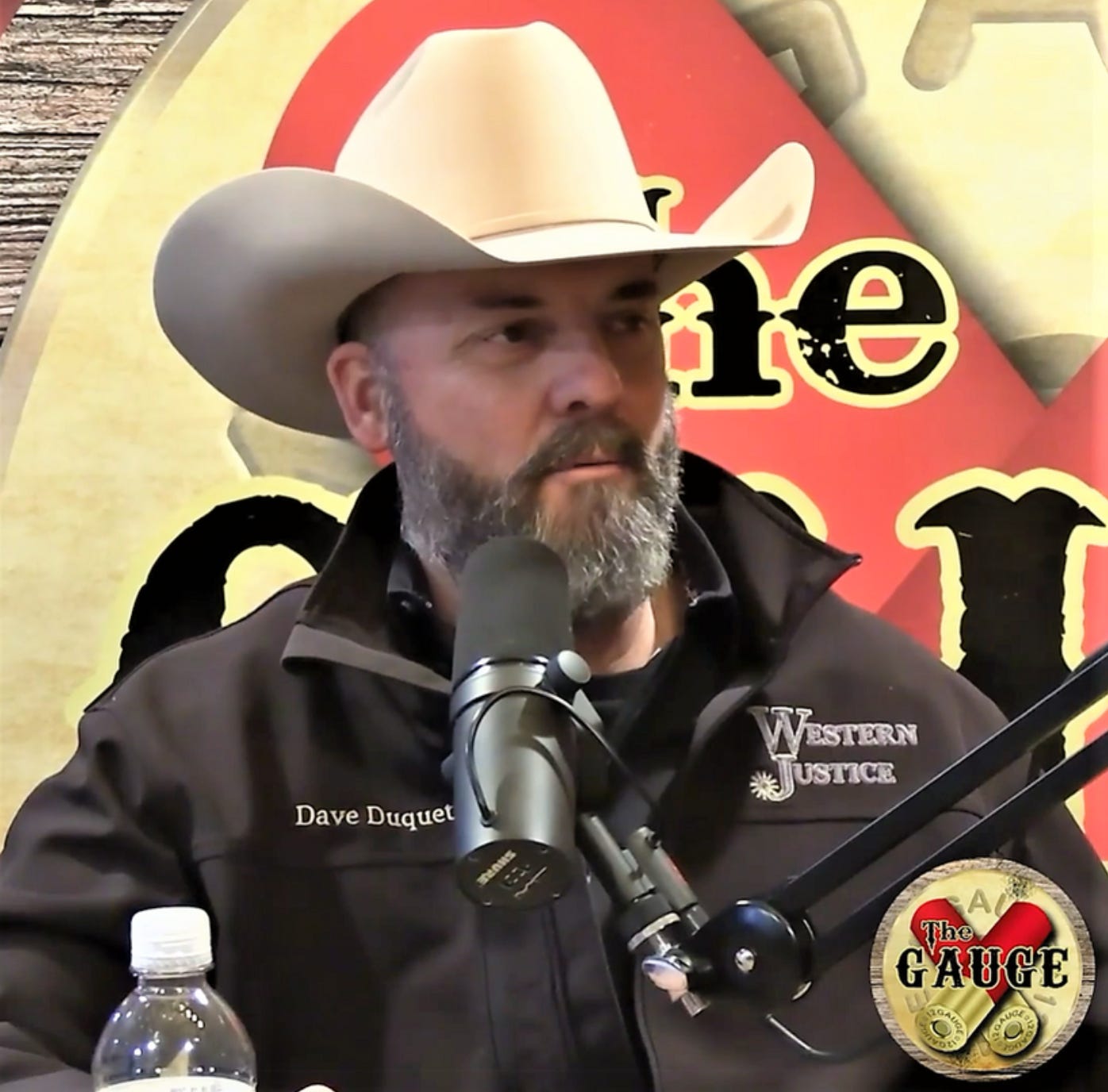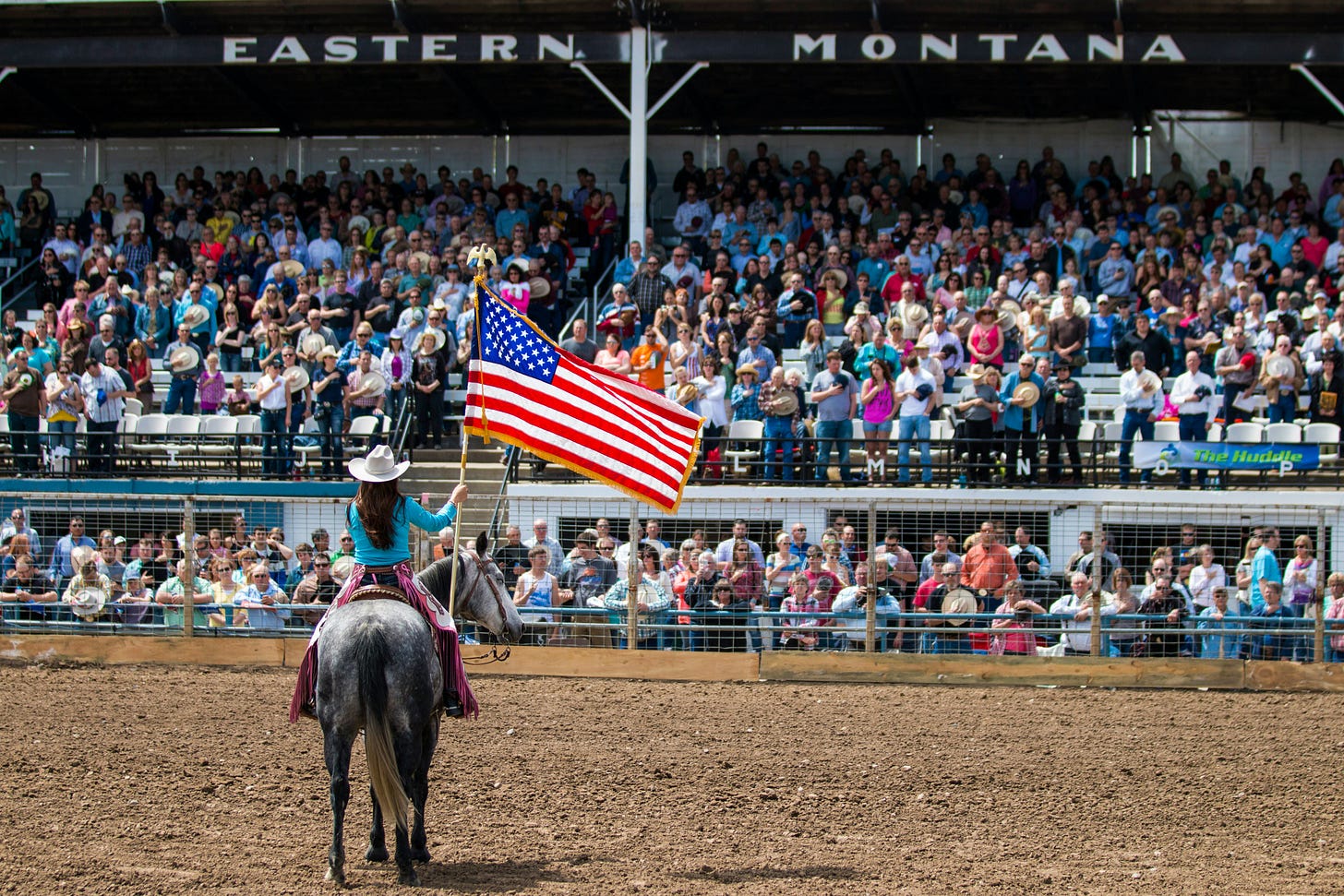Insiders Say New Rule Opens U.S. Horse Industry to Extreme Government Oversight: "This is Their Holy Grail to Take the Horse Industry Down."
The revised Horse Protection Act (HPA) broadens anti-soring regulations from gaited and racking horses to all breeds. Broad, vague language has industry leaders concerned.
This week, after widespread alarm in the horse world, the Animal Plant and Health Service (APHIS) announced a 60-day suspension of the revised Horse Protection Act (HPA)—previously slated to go into effect February 1. Insiders say the crisis is not over.
“This is a very scary situation,” says David Duquette, president of the Western Justice Legislative Fund. “After almost 20 years of battling these animal rights groups I’m looking at this thinking, this is their holy grail. It’s going to take the horse industry down.”
The HPA is a 1970 law designed to ban soring—the practice of inflicting pain in order to exaggerate the gait of certain specific horse breeds such as Tennessee Walking Horses (TWH). As a result, soring has been virtually eradicated—in 2023 the compliance rate was 98%. Yet animal rights activists continue their fight to broaden the HPA in order to gain more oversight and bureaucracy in the horse industry. The updated HPA would apply to all horse breeds, not just gaited and racking horses where the practice of soring has been employed by some unscrupulous trainers.
USDA Veterinarian: Riding a Horse Could Be “An Act of Soring”
“They have changed the definition from ‘soring a horse’ to ‘your horse is sore,’” explains Scott Dorenkamp of the Professional Rodeo Cowboys Association (PRCA) in a statement.
Duquette first sensed trouble a few years ago during an APHIS meeting where lead USDA veterinarian Dr. Aaron Rhyner said he could “see where riding a horse could be considered an act of soring.”
“I blurted out, ‘What did you just say?’” says Duquette. “The whole room turned to look at me.” Duquette asked how the group planned to enforce their new definition of this practice. “A rancher out on a 10-hour gather, is he in violation of anti-soring laws? The people who wrote this don’t know anything about horses.”

The New HPA Extends to All Horse Breeds, Not Just Racking and Gaited Horses
The revised HPA is 129 pages long. Showrunners who opt not to have an inspector present at any equestrian event—including shows, expos, sales, even rodeos—would be liable for HPA violations. Events would need to be registered 30 days prior with APHIS. The rule carries strict penalties, both civic and criminal, for a host of vaguely-worded violations.
“This rule isn’t about protecting horses; it’s about federal bureaucrats grabbing more control over an industry they clearly don’t understand,” Texas Ag Commissioner Sid Miller wrote.
Insiders say the wording of the new rule is seem vague and open to broad interpretation, and could outlaw anything that might cause irritation—from sore muscles caused by training to rubbing from a bell boot to applying fly spray.
Vague Language, Broadened Scope
Duquette thought that APHIS meeting was the end of the matter, until last fall, when he first heard about what was included in the revised HPA.
“They were supposed to send the new wording out for public comment, adjust it for those comments, and come out with the final rule,” Duquette explains. “But the final rule we’re getting now isn’t what was put out for comment back in May. Rhyner totally changed it. He was holding the new wording back as long as he could until we blew this up. We broke the news back in the fall, and no one listened to us. The American Horse Council was telling people everything was fine.”
The American Horse Council (AHC) is the largest equine advocacy group in D.C. On January 11, the AHC put out a statement formally requesting a suspension of the rule, stating that while the group supports the updated HPA, they feel the government is not prepared to execute it.
Rep. James Comer, chairman of the House Oversight Committee, has since subpoenaed Dr. Rhyner over allegations that the USDA is overstepping its authority in investigating soring.
As the USDA broadens the scope of the HPA, they have also limited the number of inspectors available to attend events. Horse Protection Inspectors (HPIs) must be veterinarians or vet techs, and they must be trained and employed by APHIS. Third-party licensing is not allowed.
“All they have to do is defund the inspectors,” Duquette says. “If they get horse shows to where they have to have a USDA inspector, what would stop them from defunding the inspectors? That’s how you build up bureaucracy to achieve your goals. I can’t imagine that ever happening, but then again I can’t imagine some of the things that have already happened.”
Horse Industry Must “Come Together”
The revised rule was set to go into effect February 1, before President Trump’s executive order froze all new regulations for 60 days. On January 23, APHIS announced a pause on implementation.
Duquette says the danger is not over.
“Once this thing is stopped, that’s when our work begins. The horse industry has to come together on this. If various horse groups all start going to D.C. looking for exemptions, we’re gonna be in trouble. We need to be strong, firm, and make our voices heard on this.”
Duquette says his team at Western Justice is working to amend the HPA through Congress rather than bureaucratic rulemaking. His proposed amendment would limit the scope of the HPA to gaited horses.
Duquette Says AHC President Julie Broadway Was “100% Complicit”
Duquette called out the AHC, and CEO Julie Broadway, saying she knew about the rule change but intentionally failed to challenge it.
“The AHC has been dying on the vine for 10 years, this might be the death knell for them. Julie Broadway is 100% complicit, not ignorant. My opinion is they wanted this because if the USDA has to inspect every horse show, what does that make her? It makes her and AHC way more relevant in D.C. This was concealed from the public for self-serving purposes.”
I reached out to AHC for comment several days ago. A representative called Duquette’s statement a “fairly big accusation” and said they would contact Broadway and get back to me. This was three days ago; I will update if and when I receive a response.
The revised HPA is now set to go into effect April 2, 2025.






Classic government overreach being spurred along by environmentalists and urban dwelling "super" citizens who believe they know what's best. This continuing list of feel good rules and laws proposed by people who don't live or work in rural and wild lands continues to tax families who make a living or people who genuinely enjoy partaking in activities that you can't find in downtown LA, NYC, or Chicago. While those urbanites clap each other on the back and think they are taking a stand they are causing real damage and hurting more than they are fixing.
I think the horse shows organizations can regulate themselves and have been. I think this is a large government overreach. Furthermore, it is unrealistic to assume they will be able to provide enough inspectors for the amount of horse shows that take place. We’re talking about everything from world shows, to the tiny local and 4-H shows. For instance, in my tiny little county, our 4-H hosts 5 shows a year. If you can imagine every county’s 4-H program hosted 5 shows a year, it’s unrealistic to think that an inspector could attend all of those shows, let alone, the NCHA,NRHA, AQHA, APHA shows. That’s only considering western riding and not the English hunters. It will kill the horse show industry which is a terrifying thought.